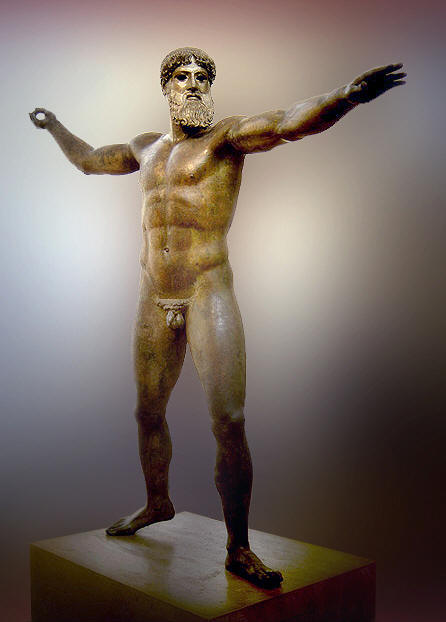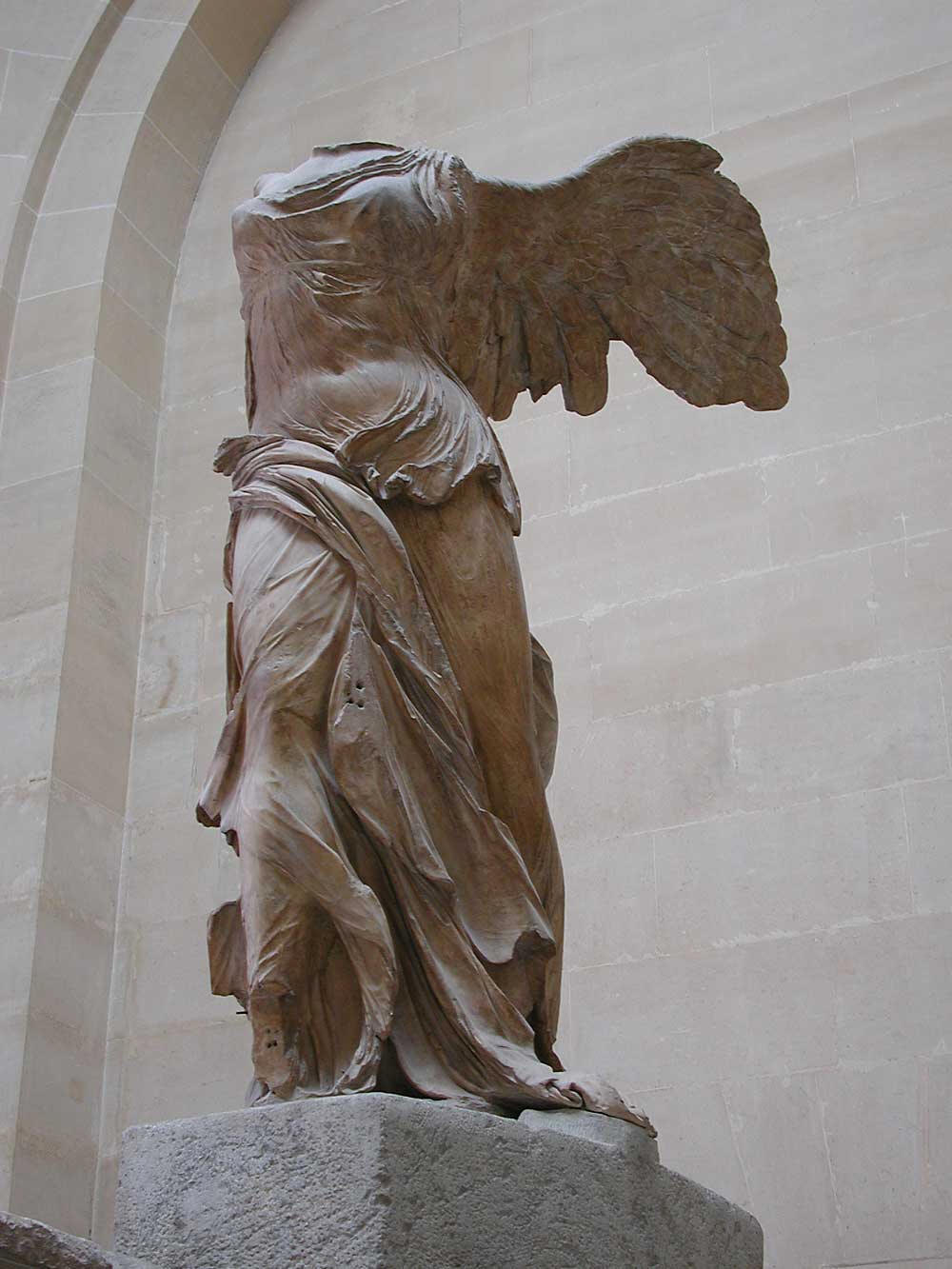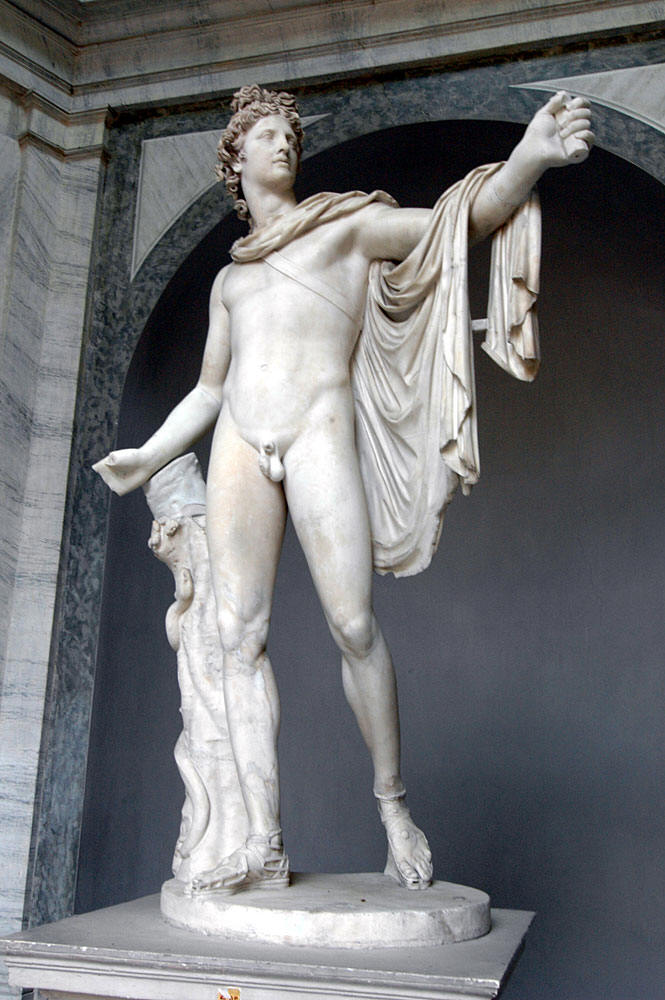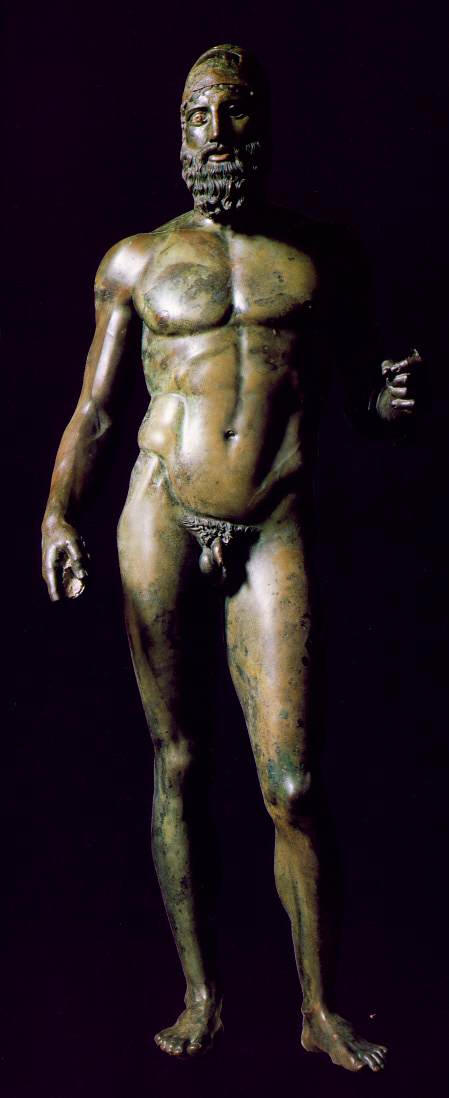Why Is Greek Art Said to Be ââåhumanisticã¢ââ?chapter 2 Humanities
Early Greek Humanism: The Beauty of the Human Grade and Essence
1) In the simplest terms, "humanism" refers to how Greek art and literature -- and fine art and literature in that tradition -- puts the human experience at the heart of events, in contrast the Hebrews and Christians put God at that center. Note the Iliad begins and centers around one individual's emotion: "Rage!"
ii) Both/And vs. Either/Or: to be man is to exist both heroic and deeply flawed, cocky-sacrificing and selfish, competitive and giving...and that's beautiful. When we speak of "humanism" we are non talking about a philosophy or religion only rather how this type of literature and culture emphasizes the human experience in all its moral and psychological complexity . Homer'south treatment of both the Greeks and Trojans represents the best -- and perhaps the starting point -- of this tradition: Agamemnon is a great but flawed king; Hector is the most honorable of the story's heroes (and he is a Trojan, not a Greek), simply Achilles, mayhap the least honorable, is really the center of the epic, and despite his flaws -- and peradventure mayhap even because of these flaws -- he is still the greatest hero. Why? Considering despite his great, divine gifts, he must nevertheless accomplish his own humanity, he must struggle toward it, overcoming his weaknesses.
And then while the Hebrews are interested in humans reaching for divine, Godly perfection, the Greek humanists are interested in how each of us must come to grips with, and make the best use of, our inherent human imperfection. The Greeks see this struggle as fascinating and cute.
3) Greek Humanism also refers to the Greeks' emphasis on the human being body : onphysical beauty and athleticism; the Greeks run across physical beauty as literally "divine", every bit godly. Our own obsession with hot movie stars and with sports, and our culture's willingness to bestow massive economic benefits on athletes, comes directly from this legacy. Equally you'll read, the original, Greek Olympics were too literally structured on the chapters of the Iliad and Odyssey that describe able-bodied events.
Go on in mind that in Ancient times, especially cultures predicated on state of war, athleticism represents an actual military advantage: one's power to run and throw objects is what determines who lives or dies, and "sports" is simply a ways of war machine training.
Oddly, our culture has largely kept the ritual value of sports as prowess while abandoning in some means its military value: today the highest paid athletes will never see combat simply receive great public honor, while combat soldiers often return to a life of obscurity and poverty.
For the Greeks, all people can and do communicate with a god or gods; these gods exist very much in the existent earth, taking on the shape of humans (or fifty-fifty animals), and even oftentimes having sexual relations with humans etc.. These gods accept a physicality that is increasingly missing in the OT god (and then returned in the NT god Jesus), and this physicality reinforces the belief that homo physical qualities are themselves an chemical element of the divine. If the gods look like u.s.a., then we await similar the gods; thus, our bodies are godly.
Our Philosophic and Autonomous Heritage
Along with giving our civilisation its definitions of humanism, heroism, and its obsession with the physical trunk, the Greeks also institute our dual seeds of both philosophy and democracy: w e see in this story a willingness to engage in criticism and examination of those things that other cultures will not. Both the Achaeans and the Trojans have gods on their sides (contrast to Hebrews, who write from the perspective of one God, on their side only); for the Greeks, many gods speak to many people and this sets the groundwork for a blazon of humanistic democratic equality. The leaders consult one some other in counsel and must weigh each others' opinions democratically because, like the gods, a plurality of ideas has a divine origin. Both Achilles and the author is willing to criticize Agamemnon, without detracting from his overall status as leader considering while one god may inspire Agamemnon, some other may inspire Achilles.
The Artemision Statuary:

 Zeus or Poseidon, Mid 5th Century BCE
Zeus or Poseidon, Mid 5th Century BCE
Images from the Artchive:
 Winged Victory of Samothrace (Nike)
Winged Victory of Samothrace (Nike)
Found on the island of Samothrace
Effectually 190 BC
Musée du Louvre, Paris
 Belvedere Apollo
Belvedere Apollo
Roman copy of a Greek original from the fifth century BC
Pio Clementino Museum, Vatican
 Man with Helmet
Man with Helmet
Bronze plant in 1972 in the Bay of Riace, Calabria, Italia
The Greek original has been attributed to Phidias
Around 440 BC
National Museum, Reggio di Calabria
holbrookpeatchath.blogspot.com
Source: https://www.webpages.uidaho.edu/engl257/ancient/greek_humanism.htm
0 Response to "Why Is Greek Art Said to Be ââåhumanisticã¢ââ?chapter 2 Humanities"
Post a Comment